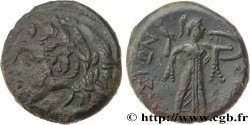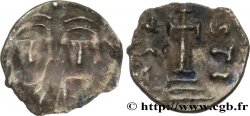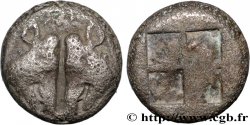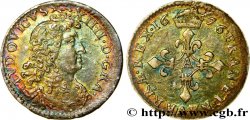E-auction 520-434629 - bgr_284445 - SICILY - SYRACUSE Hemilitron
You must signin and be an approved bidder to bid, LOGIN TO BID. Accounts are subject to approval and the approval process takes place within 48 hours. Do not wait until the day a sale closes to register. Clicking on « bid » constitutes acceptance of the terms of use of cgb.fr private e-auctions.
Bids must be placed in whole Euro amounts only. The sale will start closing at the time stated on the item description; any bids received at the site after the closing time will not be executed. Transmission times may vary and bids could be rejected if you wait until the last second. For further information ckeck the E-auctions F.A.Q.
NO BUYER'S FEE.
NO BUYER'S FEE.
| Estimate : | 125 € |
| Price : | 52 € |
| Maximum bid : | 55 € |
| End of the sale : | 03 April 2023 14:00:00 |
| bidders : | 7 bidders |
Type : Hemilitron
Date: c. 305-295 AC.
Mint name / Town : Syracuse, Sicile
Metal : silver
Diameter : 18 mm
Orientation dies : 3 h.
Weight : 4,52 g.
Rarity : R2
Coments on the condition:
Exemplaire sur un petit flan ovale, bien centré des deux côtés. Beau portrait au droit. Revers inhabituel. Patine marron foncé granuleuse et légèrement piquée
Catalogue references :
Predigree :
Cet exemplaire provient du stock Lanz
Obverse
Obverse legend : ANÉPIGRAPHE.
Obverse description : Tête d’Athéna à gauche coiffée du casque corinthien à aigrette ; derrière la tête, une petite chouette.
Reverse
Reverse description : Épi couché horizontalement à droite dans une couronne de chêne.
Reverse legend : BASILEWS/ PURROU
Reverse translation : (du roi Pyrrhus).
Commentary
Ce type de bronze est parfois attribué à l’Épire.
This type of bronze is sometimes attributed to Epirus
This type of bronze is sometimes attributed to Epirus







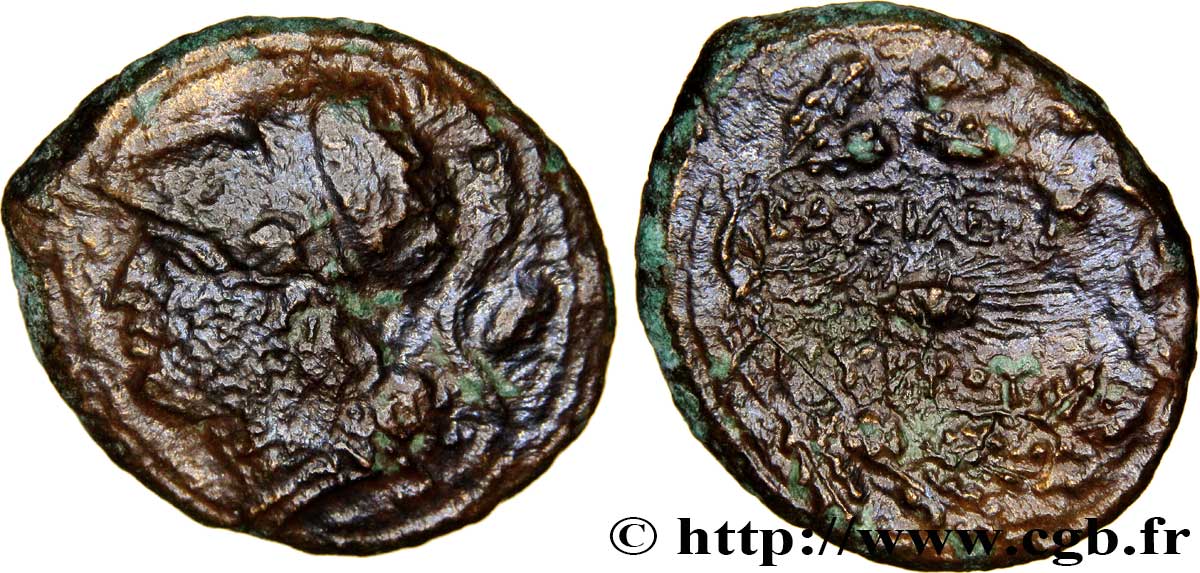
 Report a mistake
Report a mistake Print the page
Print the page Share my selection
Share my selection Ask a question
Ask a question Consign / sell
Consign / sell
 Full data
Full data